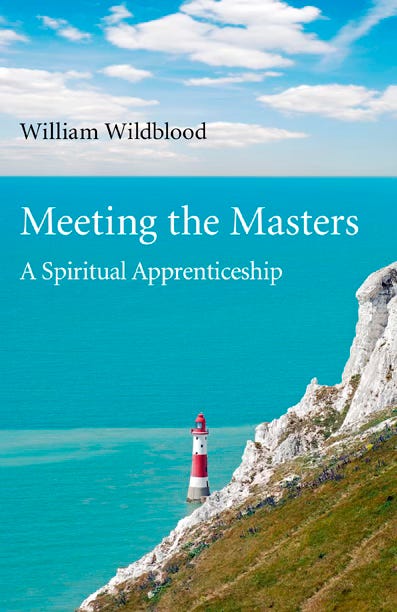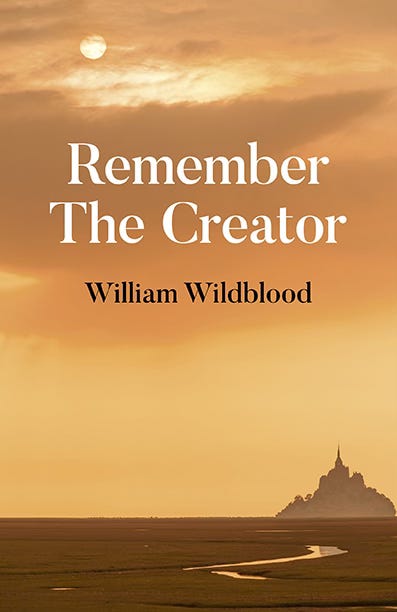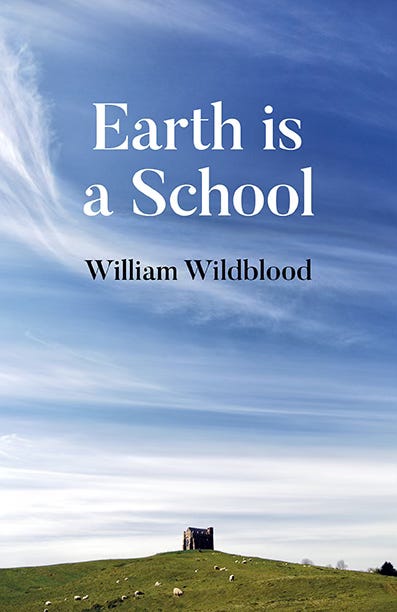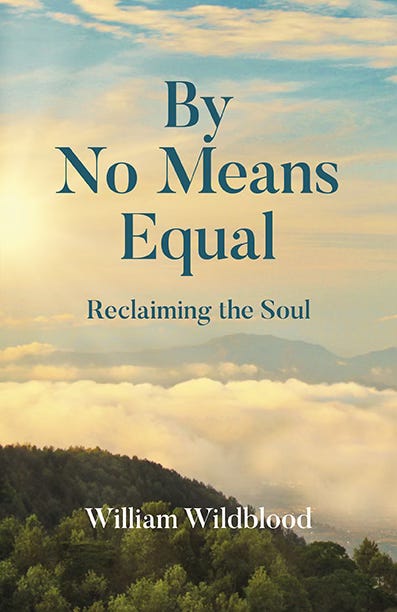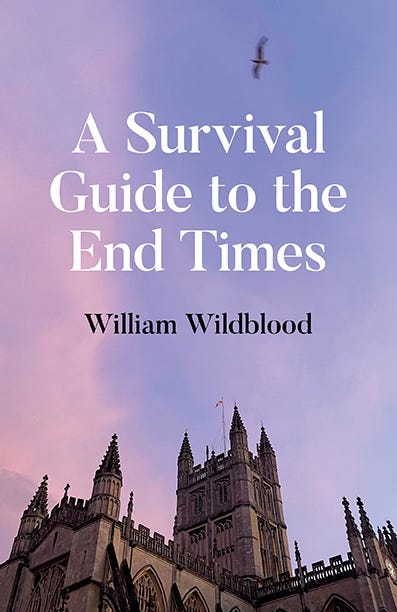During the five years Michael Lord and I spent in Yercaud we met many people, both Indians and Western travellers, some through our guest house and some just chance encounters. There was Arati, a Parsee lady in her 60s from Bombay who stayed with us for a couple of months, supposedly for health reasons. Her husband delivered her, or that's what it seemed like, and then asked us to look after her telling us that she could be a handful at times, before disappearing for several weeks. She was rather demanding but we did our best.
Then there was Evelyn. She has been living in the Aurobindo ashram in Pondicherry but needed a break from ashram life which is not surprising since you get all sorts in that kind of environment, ranging from sincere seekers to lost souls and the occasional deranged person. For most people staying there for long is exhausting because you go in as an idealist expecting some kind of enlightenment but then find all the backbiting and petty jealousies you get everywhere else, magnified by the sometimes unbalanced types who end up in ashrams. Evelyn was in some ways typical of Western female spiritual seekers, a middle-aged unmarried woman searching for Oriental light, but, though she was a spiritual seeker, she was a practical one and had a lot of common sense. She stayed with us for 3 months or so, having a break before going back into the often chaotic world of the seeker after truth in India.
Someone who had been on that trail but had now retired from it was Sofie de Mello, a German lady in her late 50s who had come to the East in the post-Beatles hippie pilgrimage time, first married and then been deserted by an Indian and who now lived quietly in a bungalow in Yercaud making ends meet as a schoolmistress. There was something a little sad about Sofie as though nothing had worked out quite as it should but she was a caring and enthusiastic person, always positive. She was a firm believer in the all religions are one idea and for her that religion boiled down to love. That's not a bad code to live by even if it can descend into the bland and sentimental without something more solid to give it substance and depth. At one time it seemed she was setting her cap at Michael but that was never going to work which she realised after a while. We remained friendly though, and were occasionally invited to tea at her house where she gave us freshly baked cakes and little homilies about the universality of all religions. I recently found a note she sent us in an old book and I reproduce it here as it's just the sort of thing she was always saying. I must have cut it down to fit as a bookmaker which is why some of it is missing but it carried on in the same vein. By the way, I am sure that Sofie is long since dead so I don't suppose she will mind me doing this. It may seem I am slightly poking fun at her here, but I am not. She was a good, sincere and kind-hearted person though she had her eccentricities.
 |
| This is the front of the card showing Ramakrishna with his disciple Vivekananda on his right and his wife Sarada Devi on his left. |
 |
Some of Sofie's sayings.
She got my name wrong here but not as badly as someone who once called me Mr Wheelbarrow. |
On one of the occasions when Sofie was entertaining us for tea she and I formed the resolve to walk down the hills through the jungle to Salem. Michael declined to accompany us. Yercaud was 5,000 feet above the plains and only accessed by the loop road along which buses and cars travelled in order to reach the town. However, we had heard talk of a path that descended to the plains and which was used by travellers on foot back in the day. We couldn't find anyone who had used it more recently but apparently it still existed. We made some enquiries but everyone we spoke to about it looked at us in amazement. "Why would you want to walk down when there's a bus?" was the attitude. I wonder if what makes Westerners want to do this sort of thing is one of the factors that caused them to change the world. For the better in some ways and the worse in others.
We eventually found someone who told us where the path started, and he said it was occasionally used but only to go to and from a couple of smaller settlements lower down the hillside. No one went all the way to the bottom by that route these days. One must remember that at this time hiking was not really a thing in most parts of India other than perhaps the foothills of the Himalayas. But elsewhere travelling on foot was probably too recent to be thought of as something potentially pleasurable. Nothing daunted, we made our preparations though as that only involved some water and a sandwich it did not take long, and early next morning the two of us set off.
 |
| This shows a similar looking path to the one where we started out. |
The path started in a reasonable state of repair, just a track as in the picture above really but easily navigable, and it was delightful to walk in the coolness of the day before the sun had climbed high with the birds singing and the forest green and sparkling in the morning light. We were in good spirits and optimistic for the journey ahead even though we had no map and no certainty that the path we were on really would take us where we wanted to go. We passed a few little shacks and attracted some attention from giggling children playing outside to whom white people would have been an unusual and strange sight, and then the trail began to degrade quite quickly. I calculated that we had descended about 1,000 feet which meant there was still a long way to go. The sun was now higher in the sky and it was getting hotter. We had hats but there was no shade on the path. Still, it was there and still going down so we knew we were on the right track. To make things slightly confusing there had been turn offs but these were even rougher than the main path so easy to identify. But then, inevitably, we came to a point at which the path split in two and there was no indication as to which one we should take. We had passed the end of the settlements some time before so there was no one to ask. We deliberated a while and then took one of them hoping for the best.
We carried on along this path but it became progressively worse and then split into several smaller paths. We chose one because we had to and continued but after a while we were no longer descending and then the path, by now almost non-existent, simply petered out in some bushes. We went back and followed another path only to find that did the same thing. Retracing our steps again with the hope of finding the main track didn't work because we had followed too many false trails to know what was what. We appeared to be lost.
 |
| This is the kind of scrub jungle in which we got lost though the plains were not visible in our situation. |
I well remember the feeling of being lost in the jungle. It was not pleasant. At this point we had descended enough for the more temperate vegetation of the higher elevation to give way to scrub jungle (compare and contrast the two pictures above) so there were no large trees but there were thick bushes, many of human height. It was now getting very hot and we only had about half a bottle of water left each. Sofie was becoming nervous and I had no idea what to do except keep walking in hope. The sun was too high for me to be able to tell which way was south west, that being roughly the direction we should be going, but I made a guess and we took one of the crude tracks that seemed to go that way. Of course it only did so for a short distance, and then it too ended. In that part of the world, what with the tropical heat and monsoon rains, the vegetation grows very quickly so any path that is not constantly renewed soon becomes overgrown. That was obviously what had happened to most of these. I wondered why these paths had existed in the first place since, crude as they were, they were something. We had not seen any people for well over an hour and I didn't think there was anyone living in these parts of the hills. Luckily we found out the reason for their existence.
It was probably only around half an hour after we had realised we were lost, though it seemed longer, when we saw two men coming towards us. I felt a wave of relief but Sofie actually gave a little scream. The men were carrying a long pole over their shoulders on which was strung an obviously freshly killed, since the blood was still dripping, wild boar. They were carrying long knives with curved blades and wearing simple loin cloths with nothing on the upper part of their body or their feet. They were obviously tribals of some sort as it was clear from their manner and appearance that their contact with civilisation was minimal, even compared to the villagers and coffee plantation workers around Yercaud which was at least a town of some description. These men were certainly not town dwellers of any description. Their eyes had a kind of wildness to them which was midway between human and animal, and their responses were strangely emotionless. I realise that it is not the sort of thing we say nowadays but it's how it seemed to me and Sofie was definitely alarmed by them. They weren't threatening but nor were they unthreatening if that makes any sense. Subsequent research revealed that there was indeed an indigenous tribal community living in the Shevaroy Hills from long before Yercaud was established in the 19th century. They were called the Malaiyalis which means mountain men and they have their own customs and religious practices separate from regular Hindu society. They are regarded as socially and economically backward but, like other Scheduled Tribes of which India has many, given certain protection by the government though what that amounts to in reality is hard to tell.
I have found a picture of members of this tribe and include it here to give an idea of how they looked. It dates from the 1860s but our two were very similar to the fellow on the right.
The two men stopped and stared at us as well they might since we did not belong in that world. They knew no English but between us Sofie and I could muster enough Tamil to ask if they knew the way to Salem. They understood and indicated that we should follow them which we did for about half a mile and then they pointed to a track which evidently was the path down to the plains. We gave them a few rupees in gratitude which they took without response which again was slightly unnerving. Normally in India if you gave anyone money they would either react with fervent thanks or exaggerated disappointment because you had not given them enough. These men didn't react at all.
However, they had rescued us and we were lucky to have found them. The path they had put us on was well marked and we had no more problems in our descent though it did take another 2-3 hours making the whole trip around 5-6 hours in total. Sofie was going on into Salem so we split up and I got a bus back to Yercaud where I arrived just as dusk was setting in. I felt fine then but the next day the backs of my calf muscles were very sore. I discovered later that poor Sofie who was in her late 50s had been laid up in bed for a couple of days. I have walked down mountains and up them and going down is always harder on the legs.





